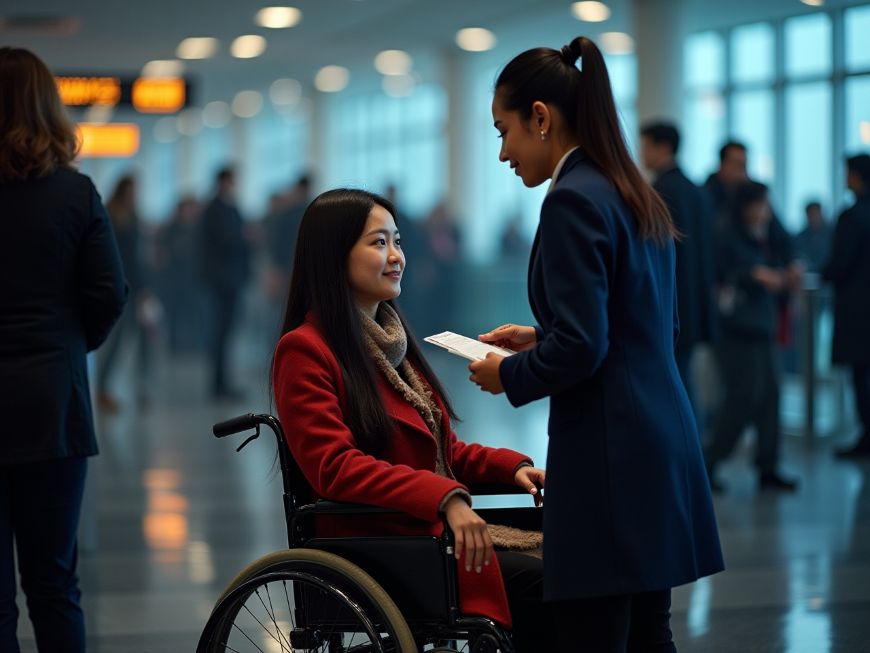Tuesday, June 17, 2025
The U.S. Department of Transportation (DOT) has once again delayed the enforcement of the newly finalized regulations designed to protect travelers who use wheelchairs. The new rules, which were originally set to take effect in January, were finalized during the Biden administration but have faced significant opposition from major airlines.
In a recent regulatory filing, the DOT confirmed that enforcement would not begin before August 1. This extension allows the current administration to review concerns raised by airlines and a lawsuit filed by several major carriers that challenged the regulations.
What the Regulations Entail
The regulations aim to enhance the treatment of disabled passengers by airlines, particularly those who rely on wheelchairs. Some of the key provisions include:
- Clearer Definition of Mishandled Wheelchairs: The regulations make it easier for the DOT to fine airlines that fail to return wheelchairs in the same condition they were received.
- Mandatory Annual Training: Airline staff involved in handling wheelchairs, either by loading them onto aircraft or assisting passengers, must undergo training. This training is required before they can perform these duties.
- Stricter Replacement and Repair Requirements: Airlines must now meet higher standards for replacing or repairing damaged wheelchairs and must act swiftly when passengers’ wheelchairs are lost or delayed.
- Passenger Assistance: Airlines are required to offer prompt service for wheelchair-bound passengers when boarding, deplaning, and making flight connections.
- Clear Information on Cargo Holds: Airlines must publish the dimensions of their cargo holds so that travelers can confirm if their wheelchair will fit before booking. Additionally, airlines must reimburse passengers if they need to pay more for a flight with larger cargo hold capacity to accommodate their wheelchair.
Airline Pushback and Legal Challenges
The regulations, which were designed to improve the travel experience for disabled passengers, have faced significant opposition from major U.S. airlines. In February, a lawsuit was filed by American Airlines, Delta, JetBlue, Southwest, and United, along with the trade group Airlines for America (A4A). The airlines argue that the rules go beyond the DOT’s authority, claiming they were too broad and intrusive.
A4A expressed that while it supported certain aspects of the regulations, the lawsuit aimed to scale back what it perceived as regulatory overreach. As a result, the DOT’s decision to delay enforcement allows both sides more time to resolve these concerns.
Timeline of Delays
Originally, the regulations were scheduled to start being enforced in January 2025, with the rules rolling out gradually through June 2025, with a final phase involving training-related rules to begin in 2026. However, the Trump administration initially postponed enforcement until March 2025. Now, the latest extension pushes enforcement to at least August 2025.
This ongoing delay has caused frustration among advocates for disabled passengers, who argue that the regulations are long overdue and necessary for improving air travel accessibility.
The Bigger Picture: Supporting Disabled Travelers
The DOT’s continued delays reflect the tension between implementing regulations to support disabled passengers and the airlines’ concerns over compliance costs and operational impacts. However, the core purpose of the regulations—ensuring better treatment for travelers who use wheelchairs—remains crucial.
Passengers who rely on wheelchairs often face significant challenges when flying. The mishandling of wheelchairs, delays in their return, and lack of assistance during key stages of their journey can cause immense hardship. These regulations aim to address these issues, making air travel more accessible and reliable for disabled individuals.
Moving Forward: What’s Next?
As the August 2025 enforcement date approaches, it’s likely that airlines and the DOT will continue to negotiate the final details of the regulations. The delay allows time for legal discussions, but it’s also a chance to ensure that the rules are clear and feasible for all parties involved.
For now, travelers with disabilities are left waiting for the promised improvements. However, the ultimate goal is clear: to create a safer, more inclusive travel environment for everyone, regardless of physical ability.
Conclusion: A Delayed, But Important Step
While the delays in enforcing these important wheelchair protection rules may be frustrating, they are also a reminder of the complexities involved in making systemic changes to the airline industry. The new regulations, once enforced, have the potential to transform the experience of millions of disabled passengers, ensuring they receive the care, attention, and respect they deserve.
As the legal and regulatory hurdles continue, travelers and advocates for disabled rights will be watching closely, hopeful that these much-needed protections will soon become a reality.
